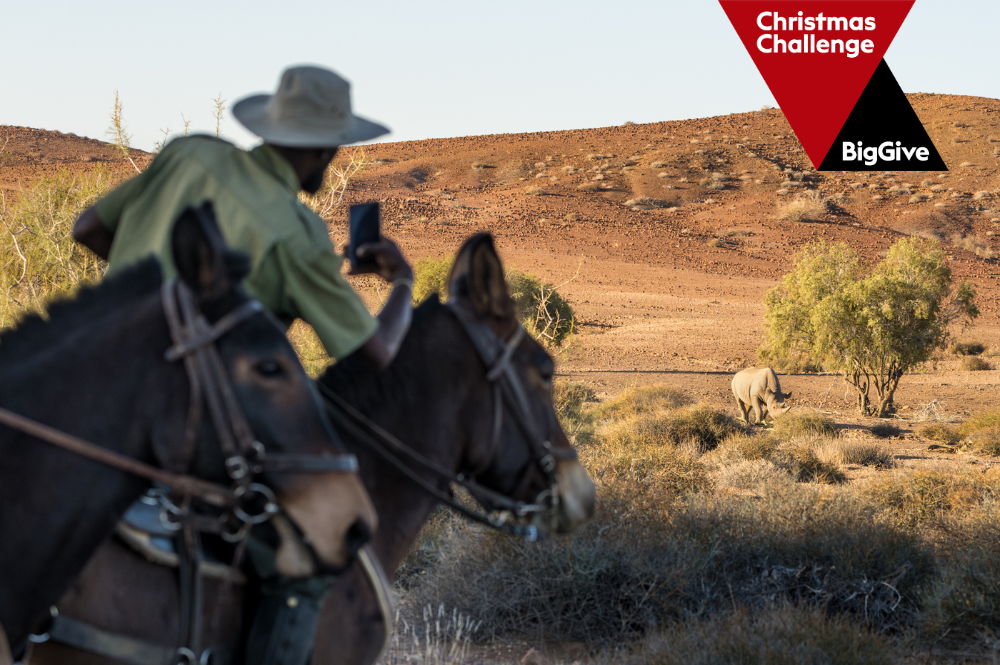As we’ve highlighted in recent blogs, the Kunene landscape is rugged, wild, and extraordinary. This unique region of northwest Namibia is home to the world’s last remaining free-roaming black rhino population, a testament to the country’s strong commitment to conservation. Yet, despite their significance, these rhinos are at risk. Protecting their future remains a top priority.
Their ongoing survival depends on daily monitoring efforts by dedicated ranger teams. Every day, rangers are on the ground, using rhino spoor (e.g. footprints and dung) to trace rhinos across the challenging landscape. After following the trail for kilometres, when a rhino is spotted, the team records important notes about the animal’s behaviour (if it’s eating, resting, drinking, or walking), its overall health (scoring its body condition on a scale from poor to good), its interaction with others nearby (if a mother is with her calf, or if there is another adult rhino nearby), its location, and its identity (using distinct notches in the rhino’s ears to identify it). Of course, if they encounter signs of criminal activity or worse, find a rhino that’s been killed, relevant teams are immediately notified, and necessary information recorded. Thankfully, this is a rare occurrence, but incidents do occur.
Just 300 km from the Kunene, 46 rhinos had been poached in Etosha National Park by October this year. Whilst not experiencing a poaching rate nearly as high, the Kunene has not been spared. After more than three years of no known illegal killings, 2024 has seen some of the Region’s rhinos lost to poaching.
Even one rhino illegally killed is one too many. However, a lack of poaching in the Kunene is undoubtedly testament to decades of Save the Rhino Trust’s (SRT) efforts to boost meaningful community engagement in conservation and the constant work of their dedicated rangers. Rangers patrolling the Kunene not only provide important data on individual rhinos, and the population but also create a constant, widespread presence on-the-ground, deterring poaching activities.
Yet, it’s the hardest-to-reach areas that remain vulnerable. SRT’s Mule Patrol Unit can reach these at-risk locations, finding rhinos that might otherwise go undetected by usual monitoring patrols. Thanks to the Unit, more rhinos can be spotted and recorded, and – importantly – their chances of survival improved.
Without the vigilance of the Mule Patrol Unit and all of SRT’s staff, the situation in the Kunene could be very different. Decades of hard work to steadily recover this unique population could be quickly lost.
The importance of these teams is clear, but their future is uncertain. We are urgently raising funds to keep the Mule Patrol Unit in action. As part of The Big Give Christmas Challenge, we are aiming to raise £90,000 to help provide the team with the equipment, resources, and support they need to continue their vital work.
Thanks to generous match donors, your donation will be doubled, but time is running out. Just one day remains for your £15 to become £30, and support two of the Unit’s rangers on their critical patrols for a day. Every donation brings us closer to safeguarding these extraordinary rhinos from the increasing threats they face.
Please stand with us in supporting the rangers, mules, and extraordinary rhinos of the Kunene. Donate now to safeguard these special rhinos for generations to come.
Thank you so much for your support.








